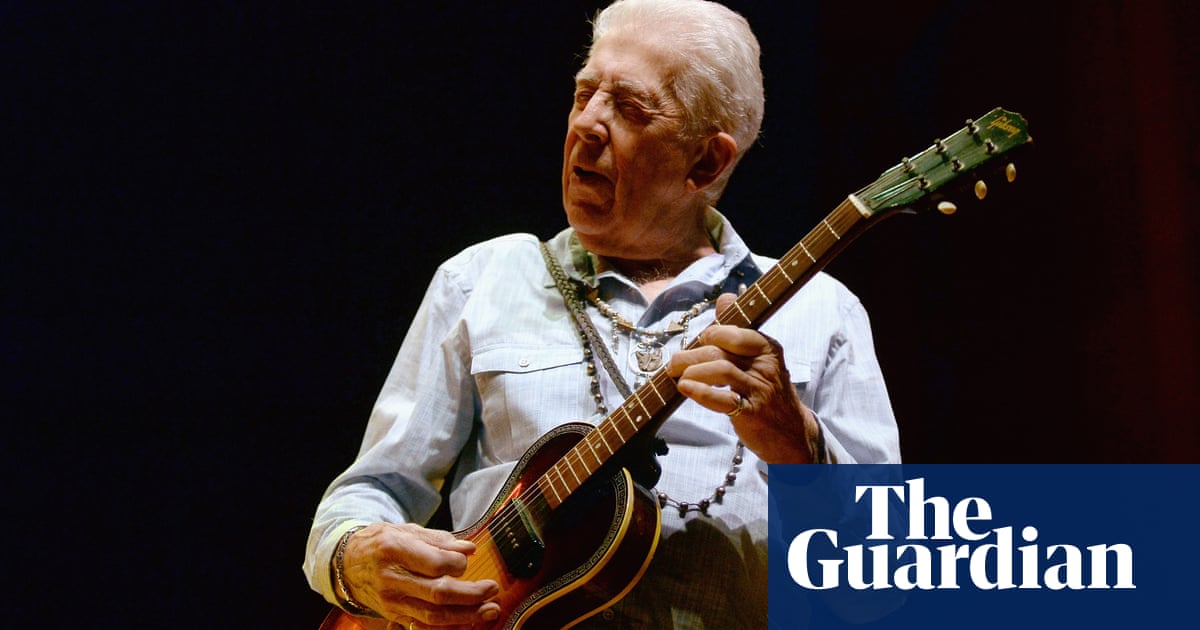John Mayall, the British blues musician whose influential band the Bluesbreakers was a training ground for Eric Clapton, Mick Fleetwood and many other superstars, has died. He was 90.
A statement on Mayall’s Instagram page announced his death, saying the musician died on Monday at his home in California. “Health issues that forced John to end his epic touring career have finally led to peace for one of this world’s greatest road warriors,” the post said.
He is credited with helping develop the English take on urban, Chicago-style rhythm and blues that played an important role in the blues revival of the late 1960s. At various times, the Bluesbreakers included Clapton and Jack Bruce, later of Cream; Fleetwood, John McVie and Peter Green of Fleetwood Mac; Mick Taylor, who played five years with the Rolling Stones; Harvey Mandel and Larry Taylor of Canned Heat; and Jon Mark and John Almond, who went on to form the Mark-Almond Band.
Mayall protested in interviews that he was not a talent scout, but played for the love of the music he had first heard on his father’s 78rpm records.
“I’m a band leader and I know what I want to play in my band – who can be good friends of mine,” Mayall said in an interview with the Southern Vermont Review. “It’s definitely a family. It’s a small kind of thing really.”
Though Mayall never approached the fame of some of his illustrious alumni, he was still performing in his late 80s, pounding out his version of Chicago blues. The lack of recognition rankled, and he wasn’t shy about saying so.
“I’ve never had a hit record, I never won a Grammy, and Rolling Stone has never done a piece about me,” he said in an interview with the Santa Barbara Independent in 2013. “I’m still an underground performer.”
Known for his blues harmonica and keyboard playing, Mayall had a Grammy nomination for Wake Up Call and a second nomination in 2022 for his album The Sun Is Shining Down. He also won official recognition in Britain with an OBE in 2005.
He was selected for the 2024 Rock & Roll Hall of Fame class, and his 1966 album Blues Breakers With Eric Clapton, is considered one of the best British blues albums.
Mayall was born on 29 November 1933 in the Cheshire town of Macclesfield, south of Manchester. Sounding a note of the hard-luck bluesman, Mayall once said: “The only reason I was born in Macclesfield was because my father was a drinker, and that’s where his favorite pub was.”
The piano was his main instrument, though he also performed on guitar and harmonica, as well as singing in a distinctive, strained-sounding voice. Aided only by drummer Keef Hartley, Mayall played all the other instruments for his 1967 album Blues Alone.
Mayall was often called the “father of British blues”, but when he moved to London in 1962 his aim was to soak up the nascent blues scene. The Bluesbreakers drew on a fluid community of musicians who drifted in and out of various bands. Mayall’s biggest catch was Clapton, who had quit the Yardbirds and joined he Bluesbreakers in 1965 because he was unhappy with the Yardbirds’ commercial direction.
Mayall and Clapton shared a passion for Chicago blues, and the guitarist later remembered that Mayall had “the most incredible collection of records I had ever seen”.
Mayall tolerated Clapton’s waywardness: he disappeared a few months after joining the band, then reappeared later the same year, sidelining the newly arrived Peter Green, then left for good in 1966 with Bruce to form Cream, which rocketed to commercial success, leaving Mayall far behind.
Clapton, interviewed for a BBC documentary on Mayall in 2003, confessed that “to a certain extent I have used his hospitality, used his band and his reputation to launch my own career”.
Clapton added: “I think he’s a great musician. I just admire and respect his steadfastness.”
Mick Taylor, who succeeded Green as a Bluesbreaker in the late 1960s, valued the wide latitude which Mayall allowed his soloists.
“You’d have complete freedom to do whatever you wanted,” Taylor said in a 1979 interview with writer Jas Obrecht. “You could make as many mistakes as you wanted, too.”
The 1970s found Mayall at low ebb personally, but still touring and doing more than 100 shows a year.
“Throughout the 70s, I performed most of my shows drunk,” Mayall said in an interview with Dan Ouellette for DownBeat magazine in 1990. One consequence was an attempt to jump from a balcony into a swimming pool that missed – shattering one of Mayall’s heels and leaving him with a limp.
“That was one incident that got me to stop drinking,” Mayall said.
Mayall and his second wife, Maggie, divorced in 2011 after 30 years of marriage. They had two sons.

